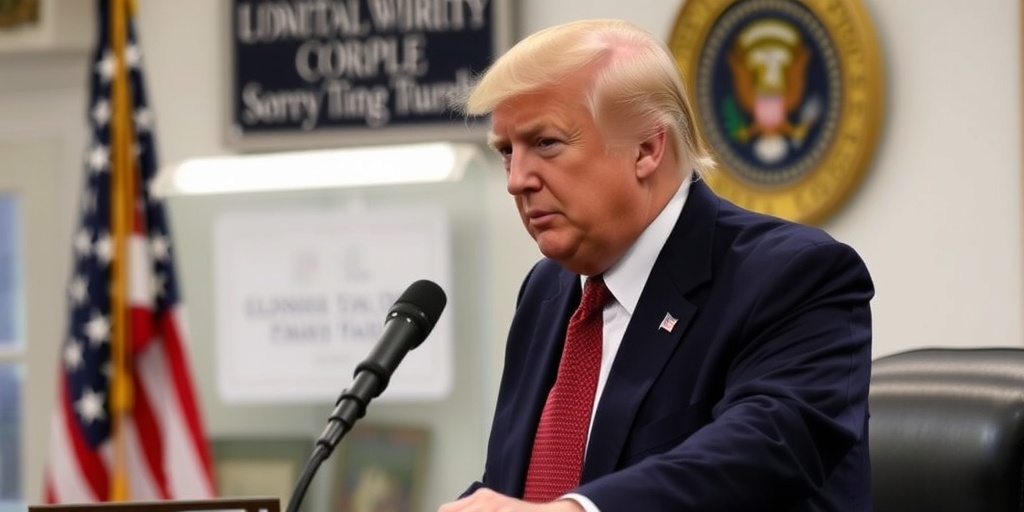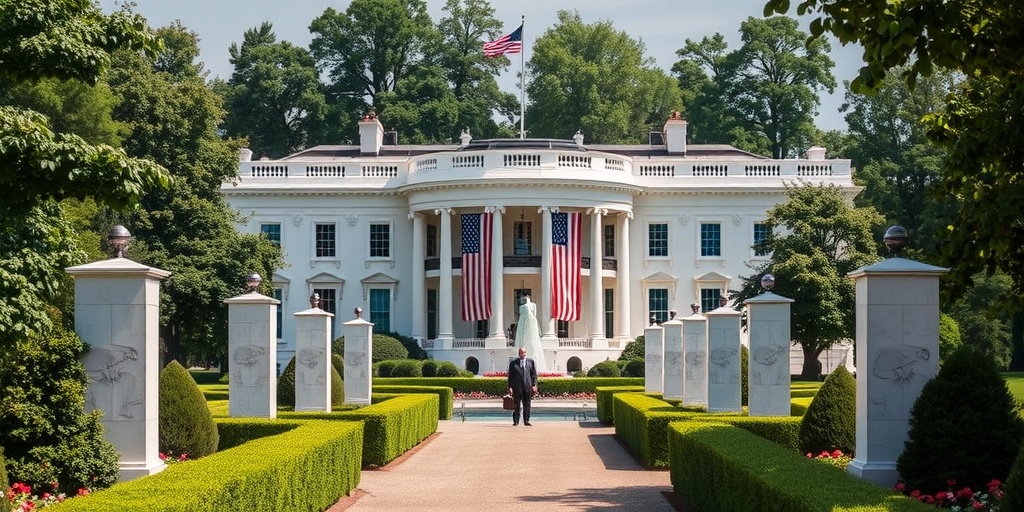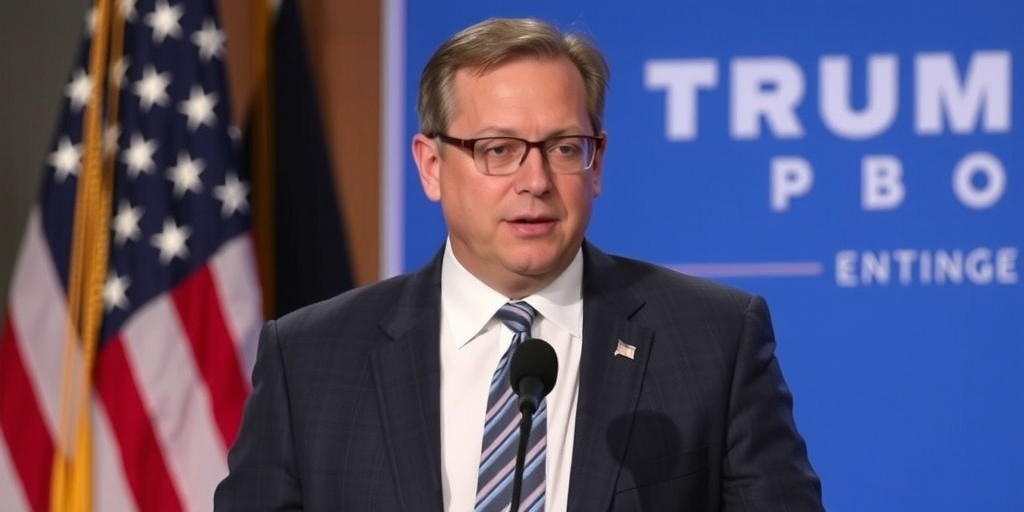Now Reading: Trump’s New Tariffs May Hinder Customs Fee Collection
-
01
Trump’s New Tariffs May Hinder Customs Fee Collection
Trump’s New Tariffs May Hinder Customs Fee Collection

Title: Potential Challenges Arise from New U.S. Tariffs on Canadian, Mexican, and Chinese Imports
On Tuesday, President Trump announced sweeping tariffs on imports from Canada, Mexico, and China, a move that could have significant implications for the system handling import duties and the enforcement of these tariffs, according to trade and legal experts. The tariffs, which impose a 25% duty on goods from Mexico and Canada, as well as an additional 10% on products from China, mark a considerable shift in U.S. trade policy, particularly given that many of these products have been entering the U.S. duty-free for years.
The United States imports a vast array of goods from these three countries, with the total value exceeding $1.3 trillion last year. This figure accounts for approximately 40% of all U.S. imports, highlighting the sheer scale and potential impact of the new tariffs. While tariff collection is typically a routine process for U.S. Customs and Border Protection (CBP), the sudden implementation of these tariffs could overwhelm the system, creating challenges for both the agency and the customs brokers who facilitate the payment of these duties.
Adam Lewis, president of Clearit, a customs brokerage firm, provided insights into the adjustments that may be necessary to collect the new tariffs effectively. Lewis noted that while modifying software systems to accommodate the new duties would not be overly complicated, it is the customs bond requirement—an insurance policy that guarantees tariff payments—that may require substantial modifications. Importers who previously paid no duties might need to significantly increase the size of their customs bonds to accommodate the new tariff levels. “Many of their products were coming in duty-free, and all of a sudden, there’s going to be a 25 percent increase,” he stated, highlighting the financial burden this could impose on importers.
In addition to the complexity of tariff collection, the enforcement of these new duties poses a significant challenge for CBP and the Department of Justice (DOJ). There is an increased risk of tariff evasion as some importers may attempt to circumvent the new fees. Tactics could include undervaluing goods in customs declarations or falsely stating that imported items originated from countries not subject to the new tariffs. Kirti Vaidya Reddy, a former federal prosecutor now working at the law firm Quarles, explained that the expansive scope and severity of the new tariffs could incentivize some importers to misrepresent the details of their imports.
Failure to comply with payment obligations could have dire financial consequences for businesses. If customs officials discover that an importer has not paid the required duties, they could demand back payments, along with penalties that may double or even triple the amount owed. This heightened financial risk may encourage compliance, but it also raises the stakes for businesses navigating the complexities of these new regulations.
A spokesperson for CBP emphasized the need for the agency to remain adaptable in light of these developments, stating, “The dynamic nature of our mission, along with evolving threats and challenges, requires C.B.P. to remain flexible and adapt quickly while ensuring seamless operations and mission resilience.” The agency believes that these new tariffs will bolster America’s competitive edge globally and protect domestic industries from unfair trade practices.
Enforcement has already proven challenging, as evidenced by previous evasion cases that have resulted in criminal prosecutions. For instance, last year, a Miami importer was convicted of participating in a scheme involving Chinese truck tires, ultimately leading to a loss of over $1.9 million in tariff revenue for the U.S. Such cases highlight the complexity and often long-winded nature of pursuing tariff evasion through the legal system.
Experts assert that any increase in enforcement efforts by the DOJ will likely necessitate more staff dedicated to investigating tariff evasion cases, which are often complicated and time-intensive. Artie McConnell, a former federal prosecutor and current partner at BakerHostetler, remarked, “The Department of Justice has the personnel and infrastructure to do it, but these cases are complex, transnational, and document-heavy. You can’t rush it, and prosecutions likely won’t come quickly.”
As the U.S. navigates this new landscape of tariffs and trade agreements, businesses, trade experts, and government agencies alike will have to adapt to the significant implications of these measures on international trade, enforcement strategies, and compliance obligations. The evolution of these tariffs will be watched closely, both for their immediate impact on the economy and for how they shape future trade relations.
Stay Informed With the Latest & Most Important News
Previous Post
Next Post
-
 01New technology breakthrough has everyone talking right now
01New technology breakthrough has everyone talking right now -
 02Unbelievable life hack everyone needs to try today
02Unbelievable life hack everyone needs to try today -
 03Fascinating discovery found buried deep beneath the ocean
03Fascinating discovery found buried deep beneath the ocean -
 04Man invents genius device that solves everyday problems
04Man invents genius device that solves everyday problems -
 05Shocking discovery that changes what we know forever
05Shocking discovery that changes what we know forever -
 06Internet goes wild over celebrity’s unexpected fashion choice
06Internet goes wild over celebrity’s unexpected fashion choice -
 07Rare animal sighting stuns scientists and wildlife lovers
07Rare animal sighting stuns scientists and wildlife lovers




















